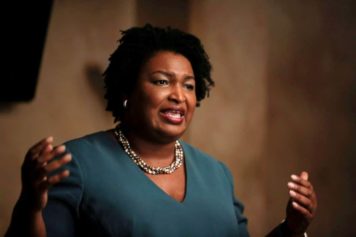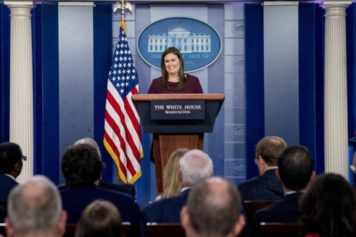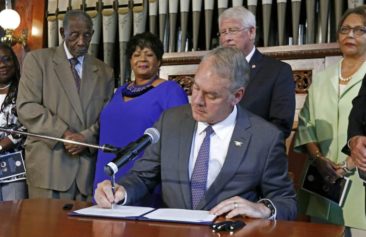The past 7 days brought forth the Republican presidential nominee’s biggest African American campaign hire and the largest collection of conservative African American speakers at one event in recent memory. While that’s fine and all, the questions remain prevalent: what should Black Republicans politically ask for and demand moving forward – and why does it matter to you?
These past 7 days have brought Black Republicans back into the front lines of political thought for a bevy of reasons.
Presumptive Republican presidential nominee Gov. Mitt Romney recently hired conservative pundit Tara Wall as a senior communications adviser for coalitions outreach. This came during the same week that Mr. Romney took the opportunity to visit West Philadelphia in an effort to bolster his support for extending school choice and educational reform as part of his platform, calling those issues “…the civil rights issue of our time…”
During the same week, the largest collection of Black conservative speakers to ever address a rally together spent the day down in rural Missouri to present an array of perspectives on Black conservatism, shining a diversity that shared ties with both the modern-day conservative movement and the historical obligations to Black America. After 4 years of having the first Black president in office, conservatives gathered a collection of Black thought leaders of the political right that included two former presidential candidates, authors, and other noted figures.
In Chicago, I sat with host Marc Lamont Hill on the set of “Our World with Black Enterprise” along with other Black Republicans. Over the course of the segment (tentatively set to air June 2nd-3rd), the four of us probed the issues facing the nation through the prism of Black conservatism.
Yet, I find myself coming back to the conversation on “The Intersection” hosted by Jeff Johnson last weekend. While I sat there as part of an intriguing debate with Roland Martin, Jeff Johnson, Elsa M. and callers, the question was brought up: what do you want specifically from these presidential candidates?
With all of the focus on Black Republicans this past week, this morphed into a larger, more pressing set of questions:
What do Black Republicans want? What should we require of the Republican Party moving forward in 2012? What should we stand for to benefit Black children and our communities? And what relationships should we demand between Black conservatives and the Black community at this point?
Of course, the answer should not simply note that we want President Obama to be a one-term president. Just the same, it should be simple to note that all Black Republicans will not and should not all have the same focus, either.
At the same time, there must be a clear focus – perhaps even clearer than what the vast majority of Black politicos look to – that Black Republicans have for initiatives, results, time frames, and ongoing bridge-building efforts. Whether those goals include a federally-led focus to eliminate the “double unemployment factor” expectation that we have between Blacks and White Americans or statewide initiatives to increase educational equality within disadvantaged communities, Black Republicans must clearly articulate goals that are driven by milestones, end points, and opportunities for collaboration.
Just the same, if Black Republicans are required – by their political circles of influence as well as their Black families and other loved ones – to express these goals in clear, direct terms that deepen the conversation past a disdain of President Obama, the Black community must finally commit to a partnership of necessity and a relationship of love with Black Republicans in 2012 and beyond.
This is whether or not the Black community will continue to give President Obama and the Democrats well over 90% of their votes without much to show for it over the years.
Between the healthcare, abortion, education, incarceration, employment, and family crises facing us collectively, Black America currently does not have the vitality or leeway to continue the status quo civic deficiencies that we pander off as political advocacy and involvement today. Complaining and bickering over crumbs at the bottom of the footstool of the kiddie’s table of American society as we do now with our unique, one-sided political identity ends up being nothing more than an embarrassing off-shoot of the proud legacy of leadership as Black Americans.
As Black Americans get involved holding both the conservative policy makers and progressive laggards accountable for the one-off way that Black communities are treated in the halls of government, the Black community must stop being manipulated into misguided political standoffs and be politically-savvy enough to leverage the system for their interests. When Black Republicans such as General Colin Powell or Secretary of State Rice speak up on current issues impacting race relations in America, Black Americans – especially Black Democrats – would be wise to catch their backs, lest Black America continues to catch hell.
It would seem that we all have a vested interest in the continued rise of Black Republicans in today’s political arena. However, during this tough climb, Black Americans of all affiliations would be wise to pay attention and get invested in this movement. Even as Black Republicans figure out what they should want, ask for, and work for politically, Black America has a role in shaping the answers to those questions if it is going to optimize its potential in the 21st century.
LENNY MCALLISTER is a senior contributor to Politic 365 that will be featured on CNN Newsroom Tuesday at 10:30 am Eastern and regularly on CNN’s “Early Start”. Hear “The McAllister Minute” on the American Urban Radio Network each week. Lenny was a featured speaker at the Rally for Common Sense (headlined by Herman Cain) May 19 in Holts Summit, Missouri.


